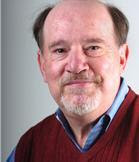Last month “Boston Globe” television critic Matthew Gilbert coined a new term for the genre of television shows that over the past few years have quickly become staples of cable television.
The term is “grimedies, and I love them, especially those produced by HBO and Showtime. The quintessential example of such a show is “Nurse Jackie,” which this week concluded its first season. But other grimedy examples are “Californication,” “Weeds,” “The United States of Tara,” “Secret Diary of a Call Girl,” all produced by Showtime and HBO's newest hit, “Hung.”
According to Gilbert, what differentiates “grimedies” from other shows is that they “hinge on darker themes, are more tinged with present-tense despair.” He best describes the new and popular genre by comparing them to what they are not.
That is, they certainly are not traditional sit-coms, with built in laugh tracks and filmed before a live studio audience. And they are not “dramadies,” the term once applied to such David E. Kelley shows as “Ally McBeal” or the more recent “Eli Stone,” which are far more whimsical.
Nor are they comedies with dramatic touches, such as “Scrubs” or dramas with comedic touches, like “The Sopranos.”
But my favorite aspect of grimedies is that their central figures are neither heroes nor villains. They do not portray the world in simplistic black and white or good and evil images. After all George Bush is no longer President, and hopefully we no longer view the world as consisting solely of “good guys and bad guys.” Grimedies make you think, while shocking and awing the viewer from scene to scene and story arc to story arc.
As I said, the recently completed Season 1 of “Nurse Jackie” was a perfect example. Jackie, played brilliantly by former Sopranos star Edie Falco (who if she doesn't win an Emmy should sue someone) is a wonderful, empathetic, intelligent nurse, who at the same time is a drug addict and adulterer. Nurse Jackie often bends the hospital rules to deal with the insanity of today's heath care system.
“Weeds” star Nancy Botwin (Mary Louise Parker) is a suburban housewife who after the death of her husband became a pot dealer to support her family. And “Hung” star Ray Drecker (Thomas Jane) is your average every day basketball coach who has embarked on a career as a male gigolo, also for economic reasons due to his divorce and his uninsured house burning down.
All of these central figures are examples of people just like you and I who are forced into desperate measures by the stark reality of the recent economic downturn.
While most grimedies are 30 minutes in length, there are a few one hour examples, my favorite being Showtime's “Dexter” (Michael C. Hall), a blood spatter expert for the police and a real down to Earth nice guy, who just happens to be a serial killer. Okay, he can't blame his killing-thing on the economy, but if you watch the show regularly I guarantee you will wind up rooting for him. After all, according to the code handed down by his father, Dexter only murders people who have escaped the law and who deserve it.
I would also include my favorite physician, Dr. Gregory House (Hugh Laurie) as another example of a central “hero” of sorts who breaks all the rules and yet is someone viewers wind up laughing at, crying with and overall admiring. I would gladly give up almost any body part to see a television episode in which House and Nurse Jackie join forces to do…well, anything.
Frankly all of these shows depict people living in the angst-riddled, economically-depressed world of today. And somehow I identify with these characters far more than the Kate Gosselins, Octomoms, or “Real Housewives of Orange County” who appear on so-called “reality shows.”
In September many of these grimedies will be returning to your TV set, and if you subscribe to cable, I suggest you check them out, as they are far more interesting, entertaining and thought-provoking than your typical broadcast network insipid pablum.
Subscribe to:
Post Comments (Atom)

No comments:
Post a Comment